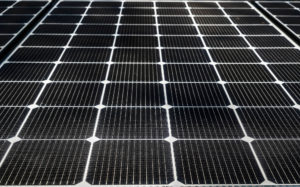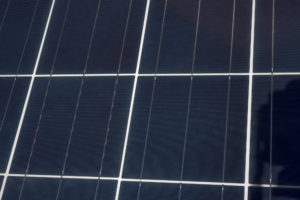Solar panels have gained immense popularity as a sustainable energy solution. As more people embrace renewable energy, it’s crucial to understand the capabilities of different solar panel wattages before making a purchase decision. In this article, we’ll explore the potential of a 200 watt solar panel, its power output, and the various applications it can serve.
Contents
- 1 Key Takeaways
- 2 Understanding Solar Panel Wattage
- 3 Power Consumption of Common Appliances
- 4 Calculating Energy Usage
- 5 Practical Applications of a 200 Watt Solar Panel
- 6 Supplementing a 200 Watt Solar Panel
- 7 Case Study: Utilizing a 200 Watt Solar Panel for Versatile Applications
- 8 Expert Insights From Our Solar Panel Installers About What a 200 Watt Solar Panel Can Run
- 9 Experience Solar Excellence with Us!
- 10 Conclusion
Key Takeaways
- A 200 watt solar panel can power various appliances and devices, including LED lights, small fans, mobile devices, laptops, mini refrigerators, and more, making it versatile for various applications.
- Understanding energy consumption and calculating usage can help determine if a 200 watt solar panel is sufficient for your needs, and supplementing it with additional panels or components may be necessary for larger power demands.
- From off-grid adventures to RV power and emergency backup, a 200 watt solar panel offers sustainable energy solutions and promotes energy independence while contributing to a greener future.
Understanding Solar Panel Wattage
When it comes to solar panel wattage, it’s crucial to have a solid understanding of how it influences the performance and capabilities of your solar panel system. Solar panel wattage refers to the amount of power a panel can generate under optimal conditions. In the case of a 200 watt solar panel, it has the potential to produce up to 200 watts of electricity per hour.
Several factors contribute to the wattage of a solar panel, including the number of photovoltaic cells, their efficiency in converting sunlight into electricity, and the overall size and design of the panel. While a 200 watt panel may be considered relatively compact, don’t underestimate its potential.
It’s worth noting that the actual power output of a solar panel can vary due to factors such as shading, temperature, and the angle and orientation of the panel towards the sun. These factors can affect the efficiency of energy production, so it’s important to consider them when assessing the performance of your solar panel system.
Power Consumption of Common Appliances
To determine what a 200 watt solar panel can effectively power, it’s essential to familiarize yourself with the power consumption of various household appliances and electronic devices. By categorizing them based on their energy requirements, we can better understand their compatibility with a 200 watt solar panel system.
Low Power Appliances
- LED lights, typically ranging from 5 to 10 watts, provide energy-efficient illumination while consuming minimal power.
- Small fans, with power requirements of around 20 to 30 watts, offer a refreshing breeze without putting a significant strain on your solar panel system.
- Mobile devices such as smartphones and tablets generally consume 5 to 10 watts, making them easily chargeable using a 200 watt solar panel setup.
- Wi-Fi routers, with power needs typically ranging from 5 to 10 watts, can remain operational without draining significant energy.
Medium Power Appliances
- Laptops typically consume 40 to 60 watts and are considered moderate power consumers and can be comfortably powered by a 200 watt solar panel system.
- Depending on their size and technology, televisions can consume between 50 to 150 watts, making it important to consider the specific model’s power requirements.
- Mini refrigerators, with power needs ranging from 60 to 100 watts, can be sustained by a 200 watt solar panel system, ensuring the preservation of your perishable goods in remote locations.
- Desktop computers, which generally require 100 to 200 watts of power, can be accommodated by a 200 watt solar panel system, providing a sustainable computing solution.
High Power Appliances
- Electric grills, with power demands of 1000 to 1500 watts, are considered high-power appliances that may require supplementary power sources when used extensively.
- Air conditioners, known for their higher power consumption, can range from 1000 to 2500 watts or more, making it important to consider alternative power solutions or energy-efficient cooling options for prolonged usage.
- With power needs ranging from 1000 to 2000 watts, washing machines might require additional power sources or energy management strategies to ensure proper functionality with a 200 watt solar panel system.
- Space heaters, typically consuming 1000 to 1500 watts, may require alternative heating solutions or limited usage in conjunction with a 200 watt solar panel system.
By considering the power consumption of your appliances and matching them with the capabilities of a 200 watt solar panel system, you can effectively manage your energy usage and optimize the performance of your solar power setup.

Calculating Energy Usage
Understanding how to calculate energy usage is crucial for optimizing the efficiency of your solar panel system and ensuring that it meets your power requirements. By accurately estimating energy consumption, you can determine the compatibility of your appliances with a 200 watt solar panel and make informed decisions about usage.
To calculate energy usage, you multiply the wattage of an appliance by the duration of its usage in hours. Let’s delve into a step-by-step guide to help you estimate energy consumption effectively:
- Identify the wattage: Determine the appliance’s power rating you want to evaluate. This information is usually provided on the device or user manual. For example, if you have a laptop with a wattage rating of 60 watts, that would be your starting point.
- Estimate the usage time: Consider how many hours the appliance is typically used per day. Be mindful of any variations in usage patterns throughout the day. For instance, using your laptop for 4 hours daily would be the time to note.
- Multiply wattage by usage time: Multiply the appliance’s wattage by the duration of its usage in hours. Using the laptop example, you would multiply 60 watts by 4 hours, resulting in an energy consumption of 240 watt-hours.
Repeat these steps for each appliance you want to assess. By adding up the energy consumption of multiple devices, you can get an idea of the total energy requirements.
Remember that this calculation provides an estimate based on the appliance’s nominal power consumption. Actual energy usage may vary due to device efficiency, standby power, or varying power demands during operation.
Calculating energy usage helps you understand how different appliances impact your overall energy consumption and assess whether a 200 watt solar panel can adequately meet your needs. It also guides you in managing your power usage effectively, especially when relying on a limited power source like solar energy.
Practical Applications of a 200 Watt Solar Panel
While a 200 watt solar panel may not have the highest wattage available, it can still power various devices and serve many practical applications. Here are some notable uses for a 200 watt solar panel:
- Off-Grid Adventures: If you enjoy camping, hiking, or engaging in outdoor activities, a 200 watt solar panel can be an excellent companion. It can charge your mobile devices, provide lighting during nighttime, and power small fans or portable radios, enhancing your outdoor experience.
- RV and Boat Power: Many recreational vehicles (RVs) and boats incorporate solar panels to provide a reliable power source while on the move. A 200 watt solar panel can keep your onboard electronics functioning, power lighting systems, or charge batteries to ensure comfortable and sustainable travels.
- Remote Cabins and Sheds: If you have a remote cabin, shed, or other standalone structures, a 200 watt solar panel combined with a battery bank can provide sufficient energy to run essential appliances. This can include lights, small refrigerators, water pumps, or communication devices, enabling you to enjoy comfortable living in off-grid locations.
- Portable Solar Solutions: Due to its manageable size and weight, a 200 watt solar panel is easily transportable, making it an ideal choice for portable solar solutions. You can set up a temporary solar system to power outdoor events, construction sites, or temporary workspaces, promoting sustainable energy practices on the go.
- Emergency Power Backup: A 200 watt solar panel can serve as a reliable emergency power backup in situations where traditional power sources fail. Connecting it to a battery bank and an inverter provides essential power for charging devices, operating emergency lighting, or running small medical equipment during power outages.
The practical applications of a 200 watt solar panel are diverse, and its versatility allows it to cater to various energy needs. When combined with efficient energy management and proper usage, a 200 watt solar panel can significantly enhance energy independence and sustainability.

Supplementing a 200 Watt Solar Panel
While a single 200 watt solar panel can power various devices and applications, you might require additional power capacity for larger energy needs. Here are some ways to supplement a 200 watt solar panel:
- Multiple Panels in Parallel: By connecting multiple 200 watt solar panels in parallel, you can increase the total power output of your solar system. This configuration allows the panels to work together, generating a combined wattage equal to the sum of their outputs. For example, two 200 watt panels connected in parallel would produce a total power output of 400 watts.
- Multiple Panels in Series: Another option is to connect multiple panels in series. This configuration increases the voltage output while maintaining the same overall wattage. It can be useful when you have specific voltage requirements for your system or when charging batteries that operate within a certain voltage range.
- Adding a Solar Panel Kit: If you require a substantial power boost, consider investing in a solar panel kit that includes multiple panels, an inverter, a charge controller, and other necessary components. These comprehensive kits provide a ready-to-use solution for expanding your solar power system and meeting higher energy demands.
- Battery Bank Expansion: To store excess energy generated by a 200 watt solar panel, you may need to expand your battery bank capacity. Adding more batteries to your system allows you to store surplus energy during the day and utilize it during nighttime or periods of low sunlight. This ensures a continuous power supply and maximizes your solar panel’s output utilization.
- Incorporating a Power Inverter: A power inverter is essential for converting the solar panel’s DC (direct current) electricity produced by the solar panel into AC (alternating current) electricity used by most appliances and devices. Upgrading to a more powerful inverter can handle higher power demands and allow you to connect additional devices to your solar system.
Consult a professional solar installer or technician when expanding or modifying your solar power system. They can guide you through the process, assess your energy requirements, and ensure the compatibility and safety of your system.
By supplementing your 200 watt solar panel with these strategies, you can customize your solar system to meet your specific power needs. Whether you aim to power a larger array of appliances or expand your off-grid capabilities, these options provide flexibility and scalability for your renewable energy setup.
Case Study: Utilizing a 200 Watt Solar Panel for Versatile Applications
Background
At Solar Panels Network USA, we recently assisted a client looking to power their off-grid cabin using a 200 watt solar panel. The client needed a reliable energy source for essential devices while maintaining sustainability and cost-effectiveness.
Project Overview
The project began with a thorough assessment of the client’s energy needs and the specific appliances they wanted to power. We aimed to provide a solution that maximized the potential of a 200 watt solar panel while ensuring all essential devices had adequate power.
Implementation
Evaluating Energy Consumption
We started by analyzing the power consumption of the client’s essential appliances, including LED lights, a small refrigerator, a laptop, and mobile devices. This step involved identifying the wattage of each device and estimating their daily usage to calculate total energy consumption.
Optimizing Solar Panel Placement
To maximize sunlight exposure, we positioned the 200 watt solar panel at an optimal angle and orientation. The panel was installed on the roof of the cabin, ensuring minimal shading and maximum energy production throughout the day.
Integrating a Battery Bank
To store excess energy generated during peak sunlight hours, we integrated a battery bank into the system. This allowed the client to use stored energy during nighttime or periods of low sunlight, ensuring a continuous power supply for their essential devices.
Results
The implementation of the 200 watt solar panel system successfully met the client’s energy needs. The system provided reliable power for the LED lights, small refrigerator, laptop, and mobile devices. The battery bank ensured energy availability during non-peak hours, enhancing the system’s overall efficiency and reliability.
Summary
This case study highlights the versatility and reliability of a 200 watt solar panel for various applications. By evaluating energy consumption, optimizing panel placement, and integrating a battery bank, Solar Panels Network USA provided a sustainable and effective energy solution for the client’s off-grid cabin. The 200 watt solar panel system not only met the client’s immediate energy needs but also offered flexibility for future expansion and enhanced energy independence.
Expert Insights From Our Solar Panel Installers About What a 200 Watt Solar Panel Can Run
A 200 watt solar panel is quite versatile and can power a range of low to medium power appliances, making it ideal for off-grid adventures and small-scale energy needs.
Senior Solar Installer
Understanding the energy consumption of your devices is key to optimizing the use of a 200 watt solar panel. With proper energy management, you can maximize its potential.
Lead Solar Technician
Combining multiple 200 watt panels or integrating a battery bank can significantly enhance your energy independence and ensure a consistent power supply for essential devices.
Solar Installation Specialist
Experience Solar Excellence with Us!
Trust in Solar Panels Network USA, where our seasoned experts deliver top-quality solar solutions for homes and businesses nationwide. With a legacy of countless successful installations and a commitment to sustainable energy, we’re your reliable partner in the solar journey. Ready for a brighter, eco-friendly future? Call us now at (855) 427-0058 and harness the power of the sun!
Conclusion
A 200 watt solar panel may seem modest compared to higher-wattage options available. However, it can still provide significant benefits and power a variety of appliances and devices. By understanding its capabilities and the power consumption of your specific appliances, you can make informed decisions about incorporating solar power into your lifestyle.
Whether you’re looking to embrace renewable energy on your outdoor adventures, enhance the functionality of your RV, or explore the possibilities of solar energy, a 200 watt solar panel can be a versatile and reliable solution. Assess your energy needs, consider the available options for supplementation, and embark on your solar-powered journey confidently.
Harness the potential of a 200 watt solar panel and unlock the benefits of solar power today!
About the Author
Solar Panels Network USA stands at the forefront of solar energy solutions, driven by a team of seasoned solar engineers and energy consultants. With over decades of experience in delivering high-quality solar installations and maintenance, we are committed to promoting sustainable energy through customer-centric, tailored solutions. Our articles reflect this commitment, crafted collaboratively by experts to provide accurate, up-to-date insights into solar technology, ensuring our readers are well-informed and empowered in their solar energy decisions.

